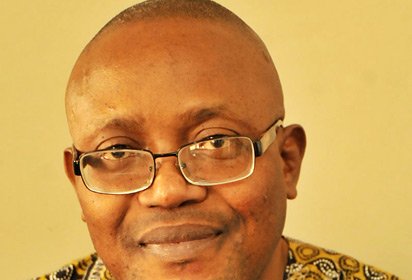If Tomorrow Comes to Nigeria, By Owei Lakemfa
Articles/Opinion, Featured Contributors/Columnists, Latest Headlines Monday, August 28th, 2017
(AFRICAN EXAMINER) – It was the largest gathering of highly educated persons I have ever attended, or heard about on the continent. The quality of the academics and the cost that would have been incurred educating them is unquantifiable. The Vice Chancellors (VCs)of all 148 universities in the country (That is already a minimum of 148 experienced professors) the Rectors of 83 polytechnics and Provosts of 37 Colleges of Education (COEs) and all their Registrars, gathering under one roof to determine admissions into tertiary institutions in the country for the 2017/2018 Academic Session.
It was in Abuja on Tuesday, August 22 and I mingled amongst them, listening to their debates and watching how they reached decisions on what seemed a simple matter; cut-off marks for admission. This turned out to be complex, and now, controversial.
Of course, I am neither a school head nor Registrar, not even an academic; I was there at the invitation of the regulatory Joint Admission and Matriculation Board (JAMB) which invited some observers as the public eye at the event, and to assure the country that the process is transparent.
But complications set in when the eggheads decided to change the cut-off marks they had earlier submitted. For the universities, the VCs had submitted an admission based on a score range of 120-200 marks scored at the Unified Tertiary Matriculation Examination (UTME) This was essentially a guide, as traditionally, many universities admit candidates who score a minimum of 180-200. In the 2016/2017 Session, no university was permitted to admit candidates scoring below 180 marks out of the total 400 marks in the UTME. In any case, last year, 821,095 or 25.66 percent of the candidates scored 190 and above. That figure could fill the carrying capacity of all the tertiary institutions.
For this year, the Rectors and Provosts had submitted a score range of 100-180 marks as their guide. However, after JAMB Registrar, Professor Ishaq Olarewaju Oloyede announced that with effect from the new Session, no underhand dealings will be allowed in admission and that no institution will be allowed to admit candidates who score less than the cut-off marks it had willingly submitted to JAMB, many institutions changed their minds. Most demanded to submit new cut-off marks. By a majority decision, the eggheads scrapped the range, and agreed only to a minimum 120 score for the Universities and 100 for the Polytechnics and COEs. They decided to submit new cut-off marks for their institutions.
Interestingly, I have read criticism of JAMB on the cut-off matter by some of the institutions who took the decision in the first place.
Personally, I think it is ridiculous for a minimum cut-off mark of 100 or 120 marks to be set for an examination that carries 400 marks. I know that neither JAMB nor the government is responsible for this; I know that it is the collective decision of the VCs, Rectors, Provosts and their Registrars. However, JAMB as the regulatory agency should realize that democracy is not anarchism; that allowing institutions, even if led by professors, to determine such standards, may not be in the overall interest of the country. As the regulator, JAMB should consult the Education Ministry and set a minimum 180 marks as the cut-off at least for universities and polytechnics while allowing the various institutions to determine higher- cut off marks if they so desire. Of course, there is the issue of persons scoring high marks in the UTME but not having the basic qualifications; JAMB in addressing this, should still ensure basic standards because our future will be compromised if we fill our tertiary institutions with candidates scoring 25-30 percent in matriculation examinations.
This brings me to a germane point raised by Professor Oloyede on admission criteria. He had pointed out that while we insist that candidates who want to read courses like those in local languages should have credits in English and Mathematics, no such requirement is made in foreign countries like Britain. I agree with him that such stringent conditions should be relaxed. A pass in Mathematics should be enough for such courses.
Also, given the few candidates with basic qualifications usually available for admission into the Education Colleges, more realistic qualifications should be considered.
The meeting also revealed the serious problems of admission dates within and amongst the universities, polytechnics and the Education Colleges. Given our age-old discrimination between university and polytechnic graduates and non-appreciation of teachers, almost all our youths want to attend universities. It is when they fail to gain such admission, they consider the polytechnics and the Education Colleges.
For example, in the 2016 admission exercise, 1,557,017 or 97.8 percent of the applicants had universities as their first choice. Only 17,673 applicants, representing 1.11 percent preferred the Colleges of Education while 17,584 applicants or 1.10 percent preferred the polytechnics. As for the National Innovative Diploma (NID) institutions, only 31 applications were received.
This scenario then lays the basis for the politics that goes on in fixing admission dates. The federal and state universities, being the best established and the cheapest in terms of fees, are candidates first choice. So they take their time in making first choice admissions which has now been fixed for October, 2017. When they finish, most of the private universities which are mainly for profit and have priced themselves out of the reach of many Nigerians, then scramble for the candidates in the Second Choice admission exercise. The window for this Second-Tier candidates is now supposed to end in December. It is after this that first, the public polytechnics, then the privates ones, have a reasonable chance of attracting the rest of the candidates. Pathetically, the Colleges of Education are left with the balance. Given this scenario, it is safe to assume, that admissions will go on to February or March, 2018. So when is the first semester to begin and end in most of these tertiary institutions?
Yet, these are not the worst of our admission problems as various tertiary institutions actually side step JAMB in admitting students. It is estimated that 30 percent of the students in the tertiary institutions especially in the Colleges of Education either did not go through the basic admission process, meet the required cut-off marks or have the required basic qualifications. At least, 17,160 students who were illegally admitted into our tertiary institutions, are asking that their admission be regularized. These include public universities. Generally, our tertiary institutions are in jeopardy.
If knowledge is the future of humanity and education its vehicle; when tomorrow comes, it will find Nigeria unprepared and a liability to mankind. We shall be fit only as foot mats and for handouts including food stamps.
Related Posts
Short URL: https://www.africanexaminer.com/?p=40584






















